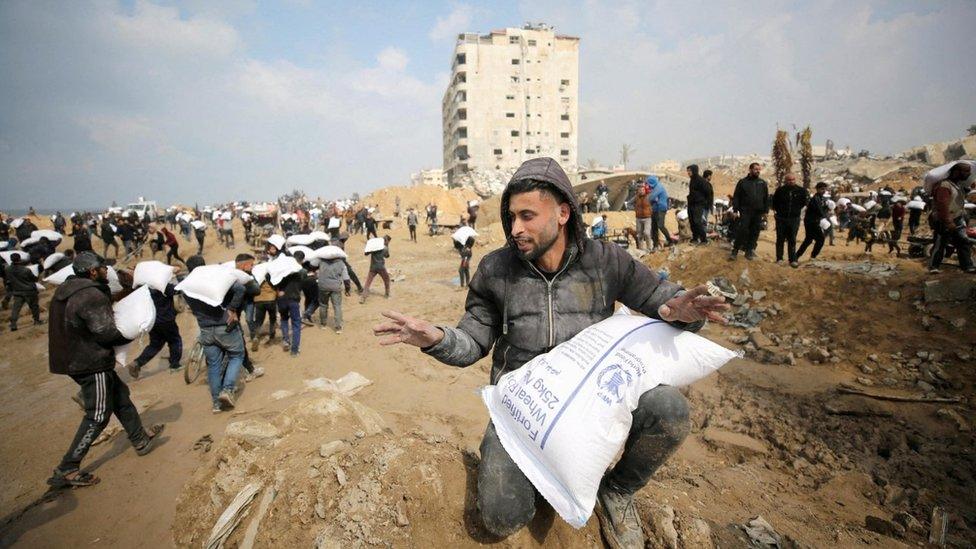Father's plea for starving children in north Gaza after son dies of malnutrition
- Published
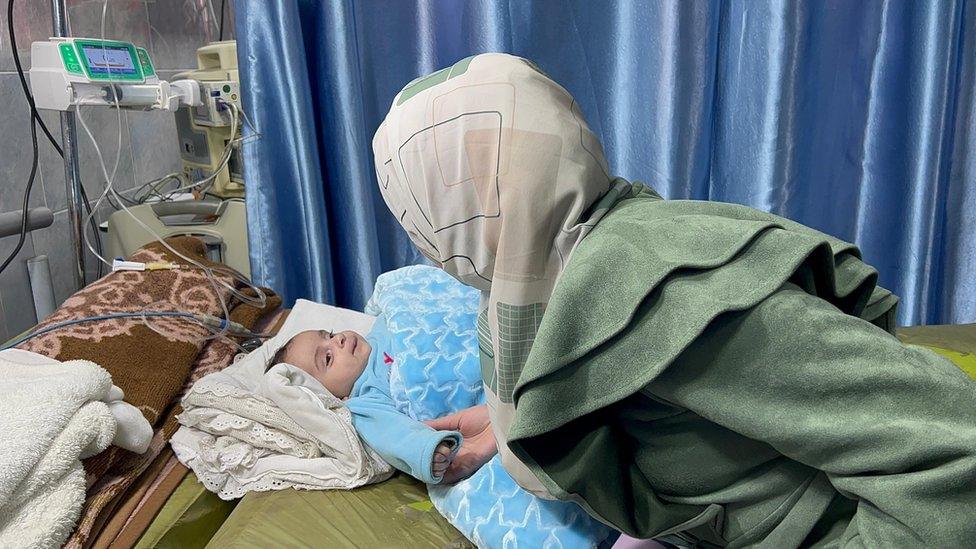
The number of children dying of malnutrition is likely to rapidly increase without a ceasefire and much more humanitarian aid, humanitarian agencies warn
"What is the fate of the children suffering from hunger? Will they find someone to save them or will they die? My son Ali has already died."
The father of Ali, a Palestinian baby boy who recently died of malnutrition and dehydration at northern Gaza's only paediatrics hospital, has appealed for help for the other children being treated there, as the UN warns of famine if aid deliveries are not substantially increased.
"Ali was born in wartime and there was no food or anything for his mother to eat - a matter which caused his kidneys to fail," the man - who did not want to be named - said in an interview recorded for BBC Arabic's Gaza Lifeline radio service.
"Ali's life got worse day after day. We tried to get him treated at hospitals, but there was no help... Ali died in front of the entire world, which kept watching him pass away."
Tragically, Ali was just one of at least 10 children who a World Health Organisation team said had died as a result of a lack of food at the overwhelmed Kamal Adwan hospital in the town of Beit Lahia, following a visit over the weekend.
Gaza's Hamas-run health ministry has reported the deaths of 18 children due to malnutrition and dehydration across the territory since last week, with at least 15 happening at Kamal Adwan. It has also expressed fears for six infants who it said were being treated for malnutrition at the hospital.
The UN's children's agency, Unicef, has warned that the number of children starving to death is likely to rapidly increase, external unless the war between Israel and Hamas ends and obstacles to humanitarian relief are immediately resolved.
Gaza's health ministry says children and women make up 70% of the more than 30,700 people who have been killed and 72,000 others injured in the territory since the start of the war.
The Israeli military launched an air and ground campaign in Gaza after Hamas's attacks on Israel on 7 October, in which around 1,200 people - mostly civilians - were killed and 253 others were taken hostage.
An estimated 300,000 people are currently isolated in northern Gaza, where the World Food Programme says hunger has reached catastrophic levels because only a trickle of aid has been able to get through.
Malnutrition screenings carried out there by UN agencies in January found that one in six children under two years of age was acutely malnourished. Of those children, almost 3% were suffering from severe wasting and requiring urgent treatment.
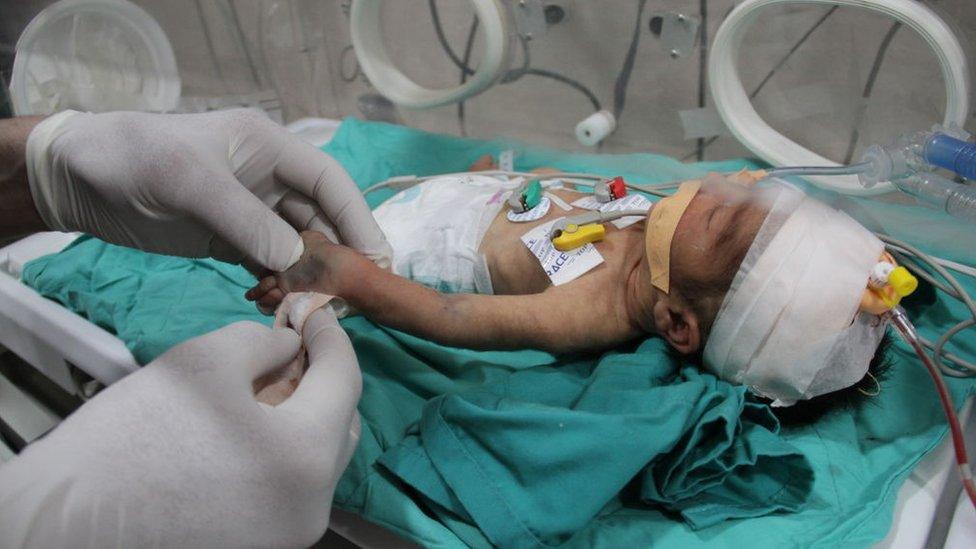
Kamal Adwan hospital is trying to treat severely malnourished babies and children with limited basic resources such as milk
The lack of nutritious food, safe water and medical services - as well as exhaustion and trauma caused by the conflict - is also hindering the ability of mothers to breastfeed their babies. Without breast milk or formula - the supplies of which are reported to be almost non-existent in the north - babies can quickly become severely dehydrated and malnourished, which increases the risk of life-threatening conditions like kidney failure.
Dr Samia Abdel Jalil, who works at Kamal Adwan's intensive care unit, said in an interview for Gaza Lifeline that an infant girl and her older sister had died at the hospital within days of each other.
"We had difficulty in obtaining milk for the entire department and not just for that little girl," she recalled. "She died without getting her small dose of milk."
Salah Samara, a four-month-old boy, is one of the seriously ill children who Dr Abdel Jalil and her colleagues are trying to treat with the limited resources at their disposal.
His mother said he was born prematurely and became severely dehydrated, and that he was now suffering from chronic kidney disease and urinary retention, which is extremely painful and causes abdominal bloating.
"My heart hurts a lot because of what is happening with him. It is a very difficult thing that you see your child crying every day for being unable to urinate... and the doctors are unable to give assistance to him."
"He has the right to receive treatment and has the right to everything else, by virtue of being a child at the beginning of his life," she added.
"[His] condition is getting worse every day. He needs treatment abroad immediately and urgently. I hope that anyone who listens to my voice will help treat my child."
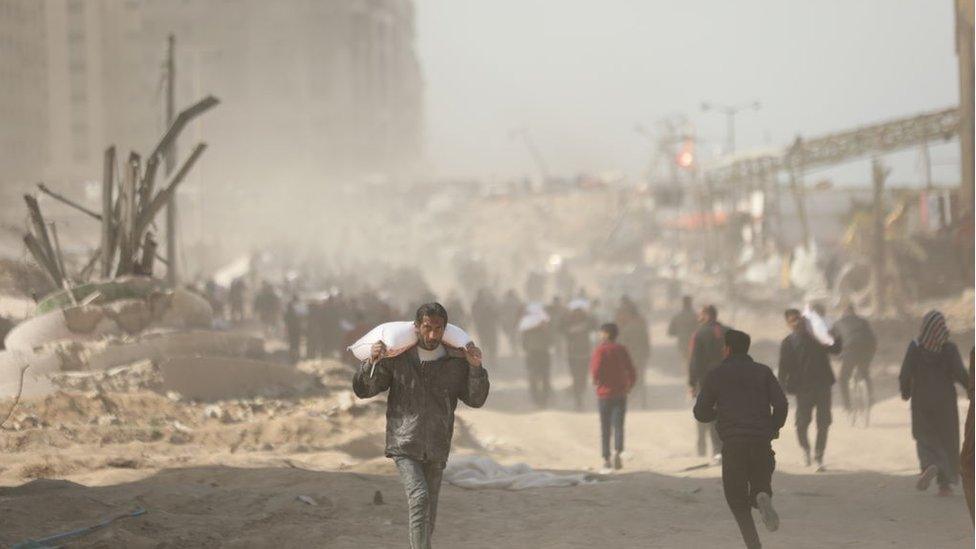
Very little aid is getting through to northern Gaza
Dr Ahmed al-Kahlot, Kamal Adwan's director, meanwhile warned that the child deaths so far reported by the health ministry understated the true scale of the problem.
"The number of cases of deaths due to malnutrition began to be counted two weeks ago, so the actual number is much higher than that," he said.
The director-general of the World Health Organization, Dr Tedros Adhanom Ghebreyesus, wrote on X, formerly Twitter, on Monday that the agency was able to deliver fuel and some essential medical supplies to Kamal Adwan and another hospital they visited on the weekend, Al-Awda in Jabalia. But he warned that the deliveries represented a fraction of the urgent lifesaving needs, external.
"We appeal to Israel to ensure humanitarian aid can be delivered safely, and regularly. Civilians, especially children, and health staff need scaled-up help immediately. But the key medicine all these patients need is peace," he said.
Western governments are also increasing pressure for Israel to do more to facilitate the distribution of aid - on Tuesday Joe Biden said "We must get more aid into Gaza... There's no excuse, none".
However on Tuesday the World Food Programme (WFP) said its first attempt in two weeks to bring food aid to northern Gaza was blocked by Israeli soldiers. The UN agency said the convoy of 14 lorries was "turned back" at a checkpoint and later looted by crowds of "desperate people". The BBC has contacted the IDF for comment.
The Israeli defence ministry body tasked with co-ordinating aid access in Gaza said, external: "We will continue expanding our humanitarian efforts to the civilian population in Gaza while we fulfil our goals of freeing our hostages from Hamas and freeing Gaza from Hamas."
Related topics
- Published6 March 2024
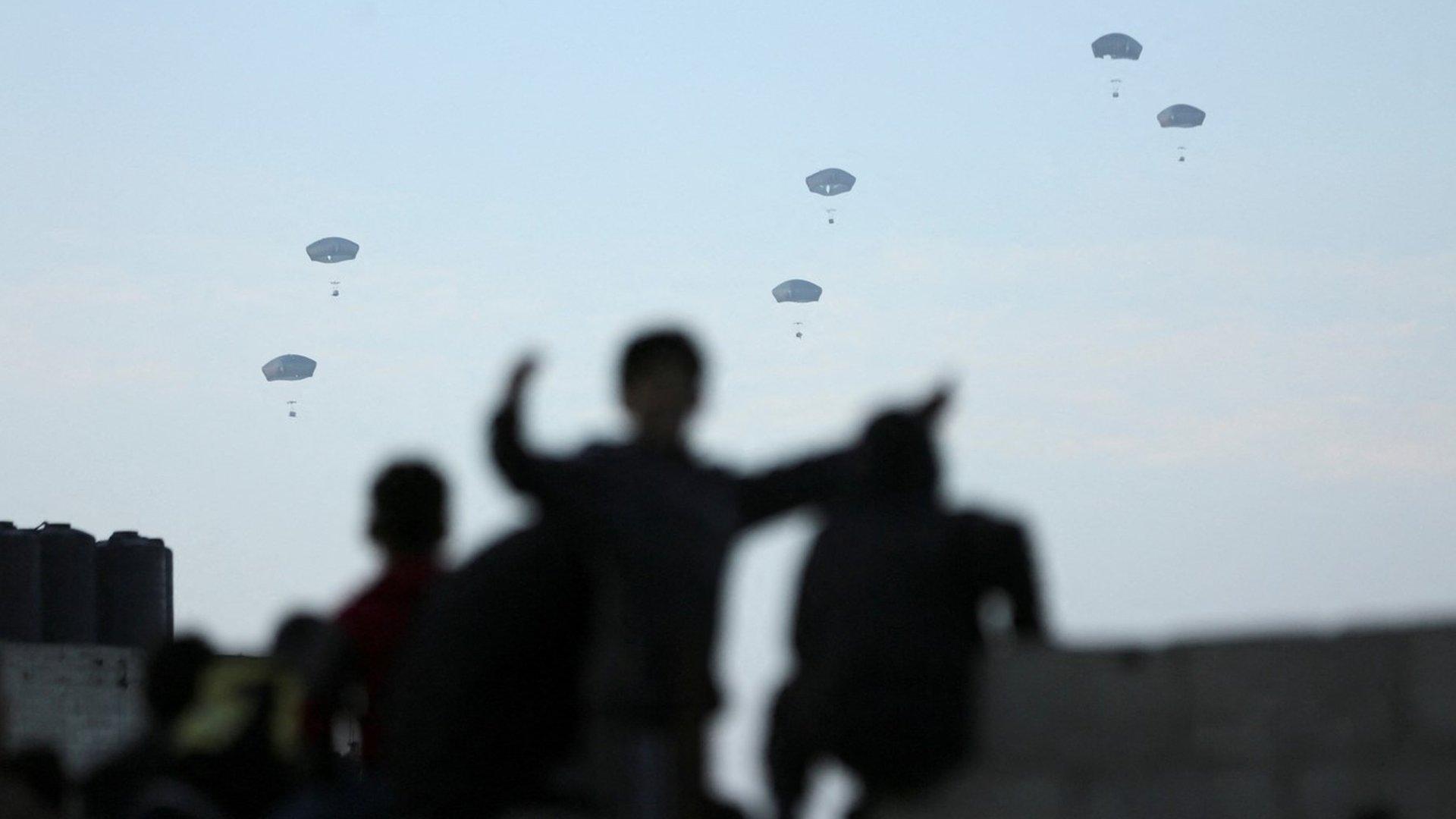
- Published5 March 2024
